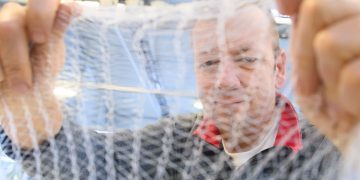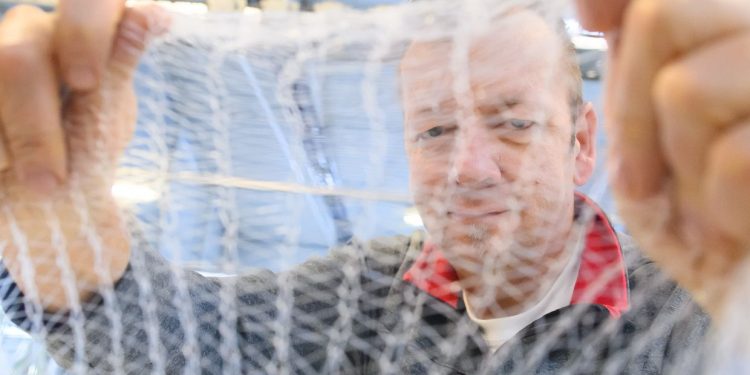When you stroll through a supermarket, you’ll likely encounter numerous plastic net packaging items bundling together items like onions, oranges, limes, or lemons.
While this may not bode well for the environment, it spells good news for Thomas Hartung, the managing director of Mesh Pack located in Kusey, Germany.
Mesh Pack specializes in producing various packaging nets from plastic granules, but its focus is shifting towards sustainable alternatives. One such innovation is a new net crafted from corn starch, earning accolades for its eco-friendly attributes.
Acknowledging the environmental downsides of traditional nets, company head Hartung is keen on sustainability. Collaborating with the Fraunhofer Institute in Halle, Germany, Mesh Pack introduced a new biodegradable “ribbon net”, made from corn starch. This net decomposes rapidly, offering comparable quality to conventional counterparts.
The raw material for these nets is sourced locally, with similar products utilizing cellulose or sugar cane.
Germany is witnessing a rise in eco-friendly net packaging solutions. In the Münsterland region, Naturnetz utilizes cellulose-based yarns from beech wood to craft nets for fruit and Christmas trees. These nets, produced in Austria, typically decompose within 12 weeks.
While fruit and vegetable nets remain in demand year-round, particularly from direct marketers and farm shops, the eco-friendly options may come at a slightly higher cost due to their unique nature.
Companies like Mesh Pack and Naturnetz are garnering recognition for their sustainable efforts, although Hartung continues to strive for even more environmentally friendly solutions, collaborating with scientists at the Fraunhofer institute to develop innovative products.
As Mesh Pack focuses on sustainability and product innovation, the quest for a truly eco-conscious solution remains a top priority, aiming to reduce the environmental impact of packaging materials and keep valuable resources in circulation.































